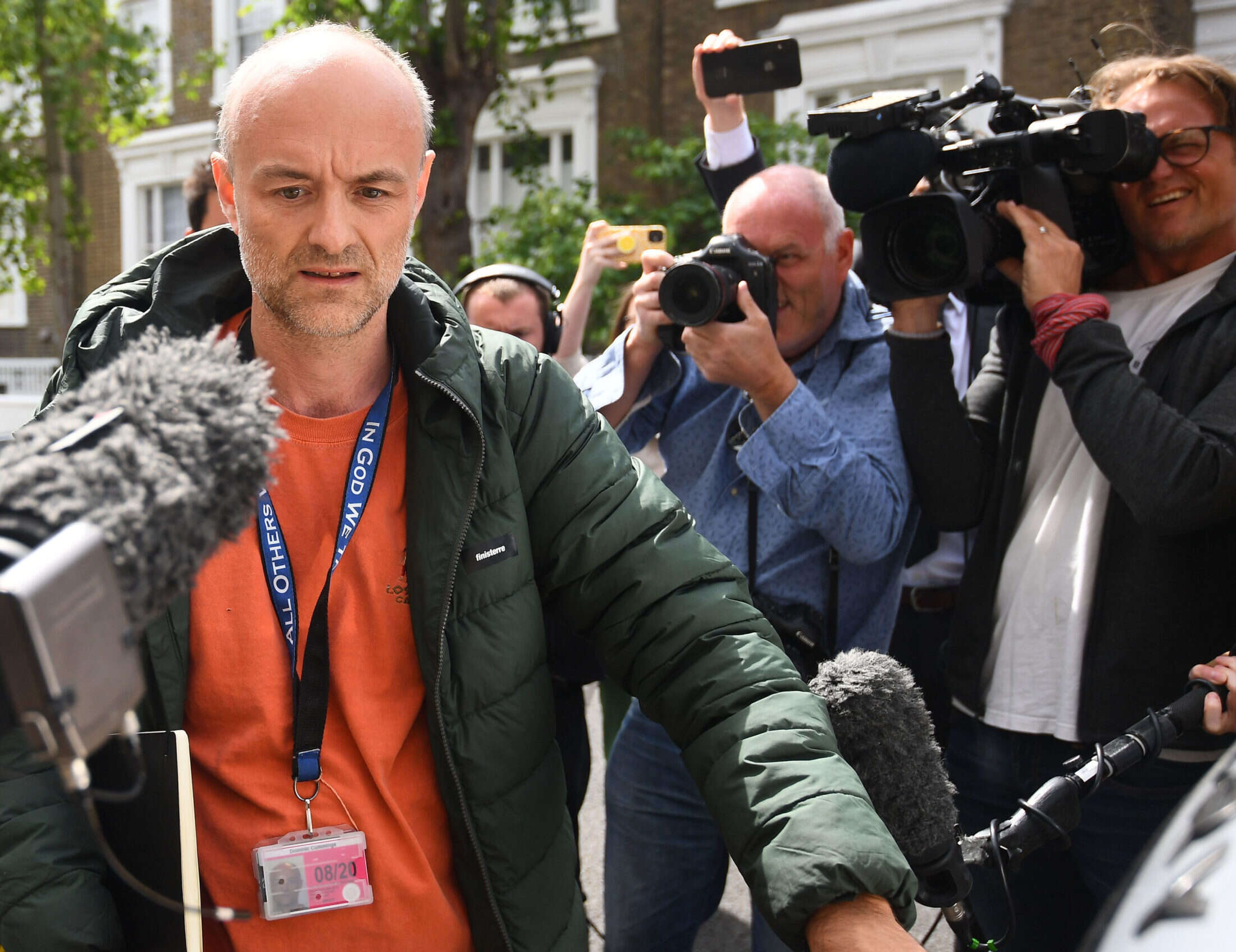
Not adhering to social distancing guidelines is one of the stories that has recurred throughout this pandemic.
When Neil Ferguson advised a nation to stay at home to keep the transmission rate of coronavirus down his position became untenable when it emerged he was a secretly meeting his married lover in breach of his own guidance.
And news that the PM’s advisor Dominic Cummings drove the length of the country during lockdown has prompted outrage from a population who thought we were all supposed to stay at home no matter what.
So pictures of journalists flouting the two-metre rule as they jostled for position to photograph and video Cummings in the last seven days are worrisome on a number of levels.
These are possibly the same photographers who have pictured members of the public failing to observe social distancing on beaches and in parks for front-page news stories.
And these cameramen are likely from the same broadcasters which roasted Cummings for an hour in the garden of Number Ten on Sunday. One word sums this behaviour up: hypocrisy.
This strikes at the heart of the question posed by Brian Leveson when he launched his 2011 inquiry into press standards: who watches the watchmen?
During the coronavirus crisis journalists were rightly designated as key workers because of our profession’s vital role in transmitting public health messages.
While parliament was suspended, and before the election of Keir Starmer to the Labour leadership, the press played the part of the official Opposition during daily Covid-19 briefings.
Our industry is, in my view, the most important one in the world – because it is the business which all others rely on for information and to shine a light on corruption.
If journalism stands for anything it must stand for holding ourselves up to the same standards we expect of others.
And if any other section of society flouted social distancing rules in the way that journalists apparently did around the Cummings story they would be rightly pilloried.
The Leveson Inquiry came about because the Press Complaints Commission said that phone-hacking was a criminal matter and not within its remit.
So for successor body IPSO to respond to the “numerous enquiries” it has received about journalists flouting social distancing by saying this is a matter for the police does not cut it.
The first sentence of the Editors’ Code, the set of rules which underpins everything IPSO does, states that its job is to “uphold the highest professional standards”.
Breaching social distancing rules which have been put in place to save lives while covering a story about someone breaching social distancing rules is not living up to the highest professional standards.
Individual photographers can’t be expected to choose between their livelihood or being the one person to take a principled stand in order to avoid crowding and thus miss their shot.
IPSO should take a lead and work with member editors, as well as broadcasters and news agencies outside its membership, to ensure journalists can operate safely and that hypocritical media scrums are avoided until social distancing rules are relaxed.
Picture: Victoria Jones/PA Wire
Email pged@pressgazette.co.uk to point out mistakes, provide story tips or send in a letter for publication on our "Letters Page" blog
